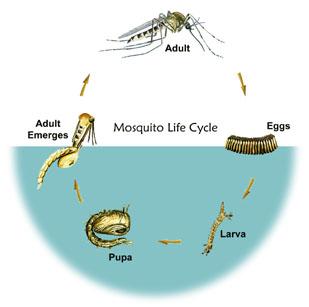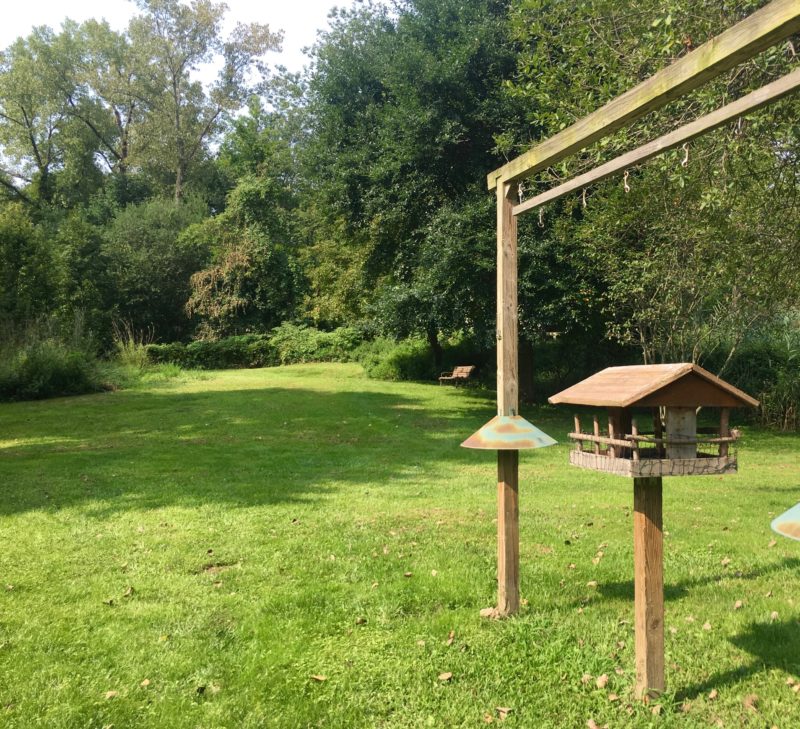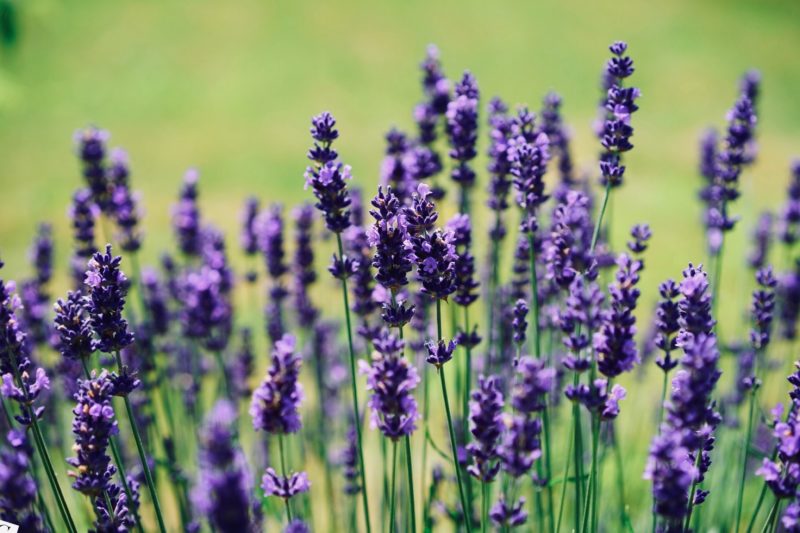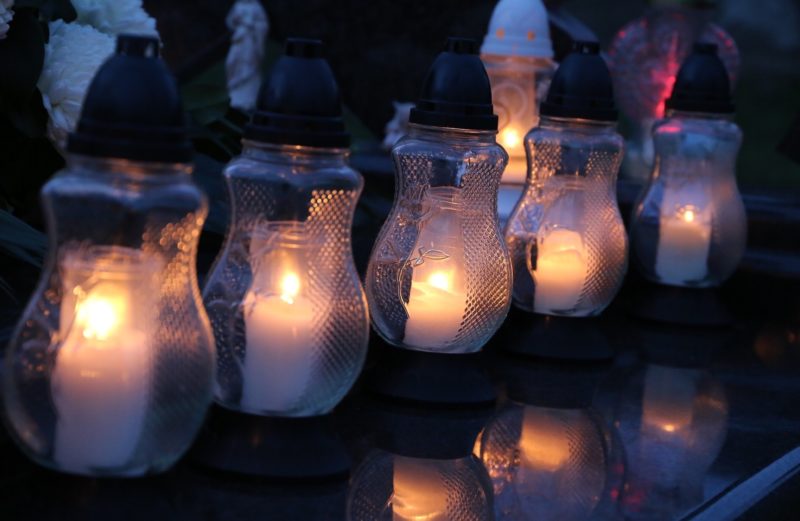Having just finished writing about natural tick repellents, it occurred to me that mosquitoes deserve equal attention. Instead of reaching automatically for the heavy-duty chemical sprays, there are a whole host of natural mosquito repellent tips to combat those pesky pests. Before I get to all that, a bit of background information on these pesky invaders.
Table of Contents
Life Cycle

It’s important to understand the mosquito’s life cycle so you know where and how to get rid of them. There are three habitats for the mosquito:
- Aquatic
- Semi-aquatic
- Terrestrial
As you can see from the EPA’s graphic above, mosquitoes develop from egg to pupa stage in an aquatic environment before emerging as the adult pest you know so well. Only female mosquitoes bite. (Males feed on nectar.)
So, in addition to protecting yourself from mosquito bites, an effective form of prevention is to destroy the ability of mosquitoes to breed on your property.
Mosquito-borne Diseases in the U.S.
Mosquitoes are annoying and being bitten is (literally) irritating, but they can also be deadly. In the U.S., the most common disease transmitted by mosquitoes is the West Nile virus, which has caused more than 2,000 deaths since 1999. There are smaller numbers of cases of malaria, dengue, Zika, and chikungunya reported in the U.S., but they, along with West Nile, are on the rise.
Make Your Property Uninviting for Mosquitoes
Remove Standing Water
Check your property for any spots where water could sit and stagnate. These are the perfect breeding grounds for mosquitoes. Some places to check:
- gutters
- tree holes
- birdbaths where water is not changed regularly
- empty plant containers
- plates under flower pots
- buckets
- open garbage/recycling bins
- decorative water features
- outdoor toys
- puddles/potholes that accumulate and sit
- plastic covers/tarpaulins
- a backyard pond with a buildup of algae
- bottle caps (Yes, even something this small can be a breeding ground!)
Get Batty for Bats … and Other Natural Predators
Creating a natural habitat by practicing organic and natural landscaping methods will attract natural mosquito predators to your property. Enlist them to help you reduce mosquito larvae and adult populations.
Note, however, that since there are only so many mosquitoes that birds and bats can (or want to) ingest, natural predators aren’t the best or only solution to eradicating mosquitoes.
Bats
Install a bat house on your property to attract bats. They’ll feed on mosquitoes and other insects and can help reduce mosquito infestation.
Bat Houses. Bat Conservation & Management company provides more information on bats and lists a wide variety of ready-made or DIY bat houses for sale.
Birds

Many species of birds (purple martins, barn swallows, migratory songbirds, waterfowl) find mosquitoes – adult and at the aquatic stage – particularly tasty. Place some birdhouses and bird feeders around your property to encourage them to visit your backyard.
Fish
Goldfish, mosquito fish, guppies, and minnows feed on mosquito larvae. Be mindful of the body of water in which you release some of these species. Some fish, like guppies, are prolific breeders and destroy native species. As a result, they’ve become more of a nuisance in some areas than a helpful mosquito deterrent.
Mosquito Dunks and Bits
Kill the larvae before they mature and become airborne by using mosquito dunks. By using a bacteria toxic only to mosquito larvae, dunks, and their smaller version, bits, are a non-toxic way to kill mosquitoes.
Eartheasy’s dunks meet National Organic Program standards and have been labeled for Organic Gardening by the EPA.
Natural Mosquito Repellents Where You Live and Entertain

Plants As Natural Mosquito Repellents?
Do plants act as natural mosquito repellents? Yes and no. There’s little factual proof to show that planting certain plants — such as lavender, citronella grass, marigold, or mint — will deter mosquitoes, but there is some evidence that crushing and activating the oils of these plants and applying them to the skin will provide protection for a period of time.
At a minimum, however, these plants would be an attractive and welcome addition to your yard!
Make it Windy
Mosquitoes aren’t strong flyers, so cranking up the fan while you’re sitting outdoors will help keep them at bay. Point the fan downward to deter mosquitoes from going after their preferred targets: your legs and ankles! A good option includes the portable fan from Vornado 630. Geek Aire offers a battery-operated fan in 12 or 16-inch sizes and Lasko’s oscillating tower fan is a good choice for large outdoor spaces.
Seal it Up!
Keep those mosquitoes from invading your home by checking that window and door screens are in good condition and that any gaps in walls, doors, or windows are covered.
Tent it Up!
For particularly buggy times, consider a mosquito tent. Choose from a wide selection of different styles. The most convenient is the umbrella net, such as the Lana45 Net Mesh Garden, which drapes over a patio umbrella.
A more involved and pricier option is to enclose your patio with an insect screen to create a protected outdoor living area. You can always make it a DIY project using insect screens sold by the roll, such as DocaScreen fiberglass screen rolls or Mosquito Curtains’ mosquito netting fabric.
Natural Mosquito Repellents to Avoid

Natural Mosquito Repellents on You
Proper Clothing: Simple, but Effective
Proper clothing can be extremely effective in preventing bug bites. Keep shirts long-sleeved and tuck your pants into your socks. If you’re really getting deep into mosquito habitats, such as salt marshes, the EPA recommends head nets. It doesn’t look pretty, but you’ll be rewarded with no bug bites!
Natural Body Sprays
How to Pick an Appropriate Repellent
 A factor in making your choice of the most appropriate spray is the amount of time you’ll be outdoors. If it’s for a short period of time, covering up and using natural mosquito repellents can be an effective deterrent.
A factor in making your choice of the most appropriate spray is the amount of time you’ll be outdoors. If it’s for a short period of time, covering up and using natural mosquito repellents can be an effective deterrent.
If you live in or are traveling in an area that has a high risk of mosquito-borne diseases, such as West Nile, it makes sense to not take chances and choose stronger repellents.
Oil of Lemon Eucalyptus (OLE). Not to be confused with lemon eucalyptus oil, OLE is refined to amplify the effects of its naturally occurring substance, PMD (para-menthane-3,8-diol). The CDC considers it as effective as DEET. Product suggestions:
Picaridin. A more recent addition to the range of insect repellents and considered less toxic than DEET. Product suggestions:
- Avon Skin So Soft Bug Guard Plus Picaridin
- Sawyer Picaridin Insect Repellent comes in a spray and lotion.
IR3535. Another synthetic repellent registered by the EPA and used for over 20 years in Europe with no harmful effects.
DEET. Although deemed safe by the Centers for Disease Control and the Environmental Working Group, I’m still not comfortable using unless absolutely necessary.
What About Clothing Treated with Insecticide?
I don’t recommend these, which are usually pre-treated with permethrin, a “likely carcinogen.”
Further Reading
The Environmental Working Group‘s Review of Bug Repellents is extensive and from a trusted source.









